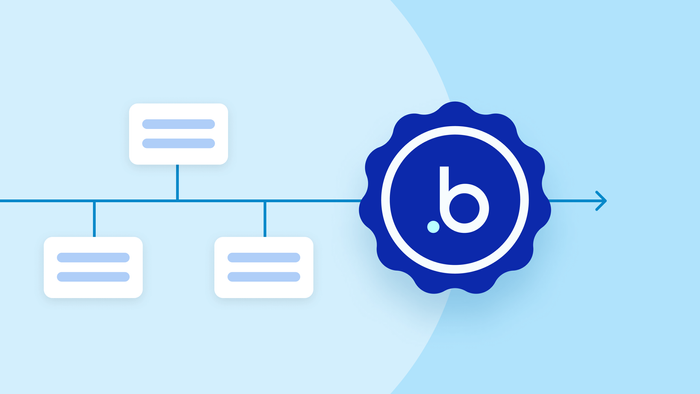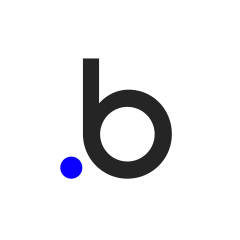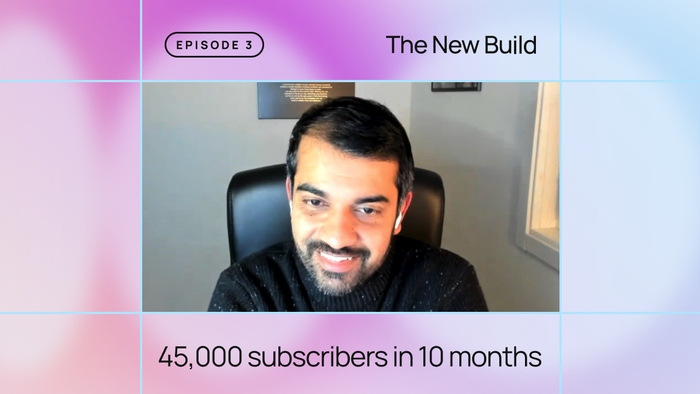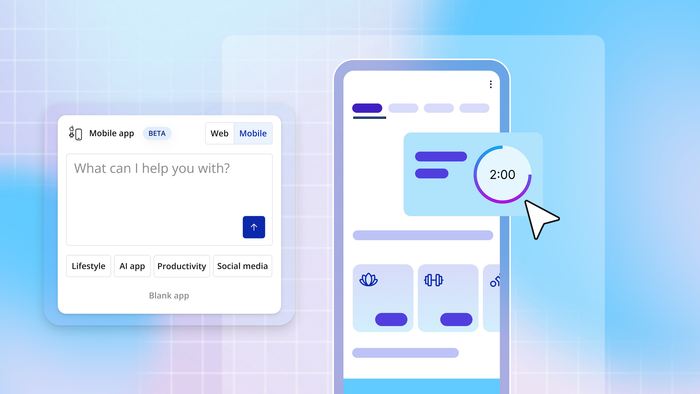It’s hard to believe that it’s already been one full year since we launched the Bubble Developer Certification — a program designed to certify top talent, and create a universal standard for professional Bubble Developers. Since then, we’ve been astounded by the responses, which have helped us learn a whole lot, and improve even more.
This leads us to our first order of business: getting recertified.
As the platform grows and improves, so does the exam, which is why developers need to retake it every year. As we’ll explain, we’ve come a long way since the first exam and have made some big updates to the certification — all based on your feedback and questions.
Let’s take a look at where we started, what’s changed, and where we’re headed.
How the certification program started
When we started the Bubble Developer Certification, we had a simple goal: to help talented developers sharpen and show off their skills, while making it easier for businesses to find the right talent. While certification isn’t mandatory, our intention was to make passing the exam a win-win for everyone — developers and businesses alike.
When developers pass the exam, they can list their certification on their LinkedIn profile, professional resume, or portfolio. This positions advanced developers as real experts and helps businesses more quickly see whether a potential developer has the skills they’re looking for.
With that mission in mind, we created the first version of the Bubble Developer Certification with a pool of 150 questions — ranging from the basics of the Bubble interface to backend functionality — to test Bubble Developers’ knowledge of platform fundamentals. We also wanted to get clear on a few initial questions that we got from community members who were debating whether the certification was right for them:
- Will people want a certification like this?
- Will the exam be challenging and in-depth enough?
- Will this certificate provide real value compared to other no-code certifications?
We discovered a lot within the first year — in more ways than one.
How the Bubble Developer Certification has changed
We’ve rebuilt the exam on Bubble, with the help of the Bubble community
When we first had the idea to create the Bubble Developer Certification Program, we faced one major obstacle: We’d never built something like this before. Without any prior knowledge about creating a certification program like the one we imagined, we thought it best to turn to an existing platform that knew a thing or two about developing a test like this one. That way we could focus on making sure the exam itself had the breadth and depth of content we knew it needed.
But after launching the certification, we quickly figured out that we needed to make a major change to the test — thanks to feedback from Bubble Developers. From some UX issues to occasional crashes, we knew the only way to improve the functionality was to make it our own. We knew we had to build it on Bubble.
Since launching it on Bubble, we’ve improved the UI experience and format for better navigation and purchases, added new proctoring, and made the whole thing feel more like us. The new exam loads faster, has better UX, and is more reliable.
And, to further help ensure that the certification program is top-notch, we also decided to launch the CAC (Certification Advisory Committee). Comprised of two cohorts of 10 experts total — from a wide range of industries and professions — the CAC meets once a month to discuss and provide feedback for the exam.
By bringing the program onto Bubble, we’re able to see first-hand the versatility and scalability of our platform, while better collecting and analyzing data in order to help regularly improve the exam. And with the help of the CAC, we can constantly check in with our very own Bubble Developers to see whether the program is meeting their needs and expectations.
We answered your (and our) questions
Will people want a certification like this?
No-code has become one of the most popular and profitable ways of developing software. But that didn’t necessarily mean that a Bubble-specific certification is what people would want.
But since launching the certification, we’ve been amazed by the number of participants: In total, over 1,500 people have enrolled to take the exam, and over 570 developers have become certified.
And on the business side, we’ve seen a 418% increase in people looking to hire Bubble Developers just in the past year.
All of that means one thing: Agencies, start-ups, and other businesses want Bubble talent.
Will the exam be challenging and in-depth enough?
Though the exam was never meant to be for beginners, we expected participants in the exam to range in advanced expertise. So, designing the certification to be accessible, but challenging enough, was something we thought long and hard about.
Here’s what we found: Participants said the exam struck just the right balance between covering the basics and more advanced topics. In fact, we found that developers even struggled in a few areas (more on that below).
To keep the exam challenging, relevant, and in-depth enough, we’ve grown our pool of questions, too, so both exam takers and business vetting talent feel confident in the results. We’ll keep expanding the question pool (with the help of the CAC) and we’re constantly refreshing questions to keep them up-to-date. Since launch, we’ve added 50 more questions and will add more monthly.
Some Bubble Developers have already gotten recertified, including Lorène Bergougnoux, a freelance Bubble Developer and member of the Certification Advisory Council. “I found the certification even more challenging than last year, which goes to show you should never rest on your laurels, and it’s important to stay up to date,” she said.
If you haven't yet taken the exam, or you tried before and didn’t pass, we’ve found that these are some of the most common topics that people struggle with:
- APIs
- File Management
- Custom Events
- Version Control
These topics are all key to working as a freelancer or at an agency, so they’re a critical part of the exam.
✅ Intro to APIs and the API Connector
✅ Bubble Docs: Files
✅ Bubble Ddocs: Custom events
✅ Using version control
✅ Exam practice questions
Will this certification provide real value compared to other no-code certifications?
Taking a 90-question exam can be a pretty big undertaking, even for veteran Bubble Developers. We understand that dedicating the time and energy to preparing and taking the exam has to feel worth it. And so far, we think it’s safe to say that it is.
The Bubble Developer Certification’s ability to cover not only Bubble-specific questions but also general no-code software development is proving invaluable for both test takers and those who want to hire them. Plus, the Bubble Developer Certification uses proctoring — which many certifications don’t — to ensure that the results are verifiable and credible. All this to say: Our program is unlike any other no-code certification on the market.
Because of this, the Bubble Developer Certification has emerged as a gold standard by which developers can “analyze [their] team’s strengths and weaknesses [and] improve,” says CAC member and Arcus Chief Technology Officer and Founder Emilio López Romo. Emilio’s own agency’s revenue has skyrocketed since getting certfied, too: Emilio’s team can “directly track the certification announcement to over $20,000 [in] projects.”
For freelancers like Lorène, the certification has also been invaluable for landing new projects. “The Bubble Developer Certification is becoming THE reference for our clients to choose the right developer among the sea of freelancers available on various platforms,” she said.
The future of the Bubble Developer Certification
We know how important it is to continuously update the program to deliver the value that it should — that’s why we’ll continue to improve the certification program every year, based on your results, feedback, and questions.
Build for as long as you want on the Free plan. Only upgrade when you're ready to launch.
Join Bubble






